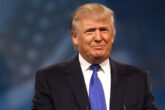April 12, 2020
How Do You Solve a Problem Like Orban?
Since the advent of COVID-19, Hungarian Prime Minister Viktor Orbán has taken full advantage of the crisis to strengthen his hold on power in Hungary. In the past days, the Hungarian Parliament has passed measures that allow Orbán to rule by emergency decree indefinitely, suspend by-elections, and threaten those who spread “false” information (as defined by the government) with jail time. International condemnation was swift, with U.S. Rep. Eliot Engel, Chair of the House Foreign Affairs Committee, calling the move “an affront to democracy. ”Yet the response from European leaders has largely been muted. Despite the European Union’s relative silence, there are measures the EU can take to punish Orbán.
In truth, the lackluster response to Orbán’s seizure of power in Hungary stems from the fact that it is actually quite difficult to punish member states who fail to uphold the EU’s values. There is no straight forward path to expel a member state, as suggestedby former Italian Prime Minister Matteo Renzi. Member states can vote to suspend a member state’s voting rights through infringement proceedings, such as Article 7 of the Treaty of the European Union. Indeed, the European Parliament already votedin 2018 to trigger a rule of law investigation of Hungary. Yet stripping Hungary of its voting rights would require a unanimous vote by the European Council, which consists of heads of state of EU countries. Undoubtedly, this measure would be vetoed by Poland, which faces separate Article 7 proceedings. Yet the EU has other policy options to punish Orbán for the illiberal path he has taken. Not using them now risks encouraging what is a burgeoning autocracy in the EU’s ranks.
Read the full article in Real Clear World.
More from CNAS
-
The Donroe Doctrine? Venezuela, Greenland, and America's New Agenda
On January 3, the United States apprehended the sitting president of Venezuela, Nicolás Maduro, and brought him to the United States to face trial for drug trafficking. In the...
By Andrea Kendall-Taylor & Jim Townsend
-
Transatlantic Security / National Security Law Program
Respect Umpires — on the Field and in the CourtroomCongress shouldn’t let the administration’s contempt slide. None of us should....
By Will Rogers
-
Republicans Saved Democracy Once. Will They Do It Again?
Despite different political and historical contexts, the playbook these personalist leaders use to dismantle democracy has been identical....
By Andrea Kendall-Taylor, Joseph Wright & Erica Frantz
-
Exploiting Russian Weakness
Introduction Russia’s full-scale invasion of Ukraine has created ripple effects that extend well beyond Ukraine’s borders. Reverberations from the war have been particularly p...
By Nicholas Lokker & Andrea Kendall-Taylor




